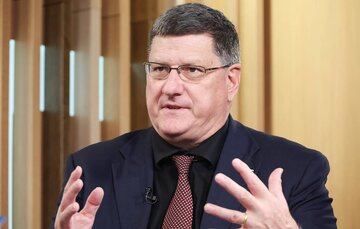AhlulBayt News Agency (ABNA): The continuation of Iran's progress in the field of modern technologies such as space, missiles, advanced medical products, etc. shows the failure of the strategy of "maximum pressure" and the ineffectiveness of sanctions.
Last Monday, February 1, the new and three-stage satellite carrier of "Zul-Jannah" successfully completed its first test launch.
Zul-Jannah combined solid fuel and liquid satellite carrier, which is the first Iranian solid fuel satellite in the first stage and the first satellite with two similar propellants in the first and second stages, can carry a payload of more than 200 kg and can be easily launched without the need for a fixed platform from geographical latitude to the south of the country.
No need for a launch pad allows the satellite to inject payloads into the solar orbit or SSO, a valuable feature for sensing satellites that can perform accurate imaging at fixed angles and at specific times.
According to the plans, three research launches are planned for Zul-Jannah, the first of which has been completed and the other stages must be completed within the next one to one and a half years, in which the next launches of this phase may include a satellite payload.
The purpose of designing this 25.5-meter and 52-ton satellite is to place cargoes up to 220 kg in a 500-kilometer circular orbit.
The important point about the successful construction and testing of this satellite and other Iranian space achievements is that; This happened during the most difficult and unprecedented sanctions regimes, which the Americans called "crippling", and the continuation of these advances in new technologies, such as space, missiles, advanced medical products, etc., shows the failure of the "maximum pressure" strategy. The ineffectiveness of sanctions.
Meanwhile, the United States and Europe are still trying to pursue this failed strategy by "delaying" and "promising to lift sanctions" to stop Iran.
On the other hand; The US response to Iran's conventional action on the Zul-Jannah satellite-launched missile test and its concern about the move, which the United States says is the beginning of diplomacy, shows that "diplomacy" is tantamount to "stopping Iran's scientific and technological activities."
The remarks come at a time when there is basically no diplomatic mechanism to be established between Iran and the United States, which Biden's team has linked to the issue of Iran's space experiments.
It seems that the Americans are trying to turn any event that they do not like into an excuse to "not make up for their past mistakes in leaving JCPOA" and to seek more concessions to ignore it!
According to this; Although the launch of Zul-Jannah is part of the development of Iran's conventional space program, the US and European linking of this issue to Iran's missile program and its opposition to diplomatic engagement shows that they are not allowed to bet on Iran due to negligence. Also, the false hypothesis of entering into the issue of Iran's missile programs within the framework of JCPOA is in line with their presuppositions.
BY: Mohammad Ghaderi
/129
Last Monday, February 1, the new and three-stage satellite carrier of "Zul-Jannah" successfully completed its first test launch.
Zul-Jannah combined solid fuel and liquid satellite carrier, which is the first Iranian solid fuel satellite in the first stage and the first satellite with two similar propellants in the first and second stages, can carry a payload of more than 200 kg and can be easily launched without the need for a fixed platform from geographical latitude to the south of the country.
No need for a launch pad allows the satellite to inject payloads into the solar orbit or SSO, a valuable feature for sensing satellites that can perform accurate imaging at fixed angles and at specific times.
According to the plans, three research launches are planned for Zul-Jannah, the first of which has been completed and the other stages must be completed within the next one to one and a half years, in which the next launches of this phase may include a satellite payload.
The purpose of designing this 25.5-meter and 52-ton satellite is to place cargoes up to 220 kg in a 500-kilometer circular orbit.
The important point about the successful construction and testing of this satellite and other Iranian space achievements is that; This happened during the most difficult and unprecedented sanctions regimes, which the Americans called "crippling", and the continuation of these advances in new technologies, such as space, missiles, advanced medical products, etc., shows the failure of the "maximum pressure" strategy. The ineffectiveness of sanctions.
Meanwhile, the United States and Europe are still trying to pursue this failed strategy by "delaying" and "promising to lift sanctions" to stop Iran.
On the other hand; The US response to Iran's conventional action on the Zul-Jannah satellite-launched missile test and its concern about the move, which the United States says is the beginning of diplomacy, shows that "diplomacy" is tantamount to "stopping Iran's scientific and technological activities."
The remarks come at a time when there is basically no diplomatic mechanism to be established between Iran and the United States, which Biden's team has linked to the issue of Iran's space experiments.
It seems that the Americans are trying to turn any event that they do not like into an excuse to "not make up for their past mistakes in leaving JCPOA" and to seek more concessions to ignore it!
According to this; Although the launch of Zul-Jannah is part of the development of Iran's conventional space program, the US and European linking of this issue to Iran's missile program and its opposition to diplomatic engagement shows that they are not allowed to bet on Iran due to negligence. Also, the false hypothesis of entering into the issue of Iran's missile programs within the framework of JCPOA is in line with their presuppositions.
BY: Mohammad Ghaderi





